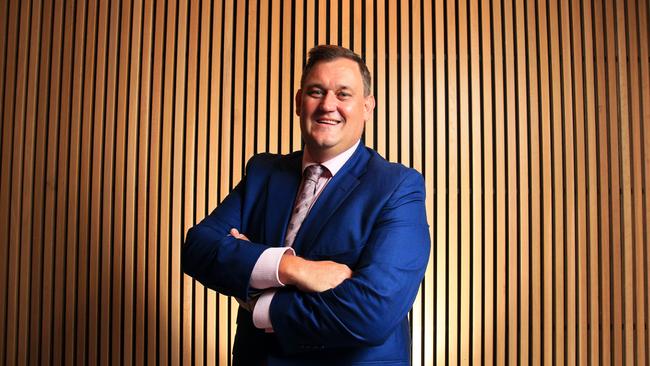
Every year The Australian’s John Durie asks some of the biggest names in Australian business five key questions about what’s coming in the year ahead.
Here is what Alinta’s Jeff Dimery sees ahead in 2020.
Read more from the CEO Survey.
How is your company affected by low-interest rates and what is needed to boost the economy?
Do more to resolve the energy trilemma – affordability, reliability and sustainability – is key to boosting the economy, although I’m very optimistic that the industry is getting on with actions to address each of them. Directly, low-interest rates are a factor in business cases for new investments. In an environment where capital is cheap (and there is enough confidence in policy direction), this helps. Indirectly, customers dealing with the combination of low-interest rates, high debt and low wage growth continues to be a concern for us. It makes energy less affordable and life harder for our customers.
What is the impact of government regulations on your company, including those applying to the financial sector?
The downside impacts include additional costs, confusion and reduced competition. But it some cases we’ve seen better outcomes for our customers, including increased clarity in the retail market and the levelling of the playing field for competition. More often than not “good” regulations start outside politics. In the future, we’d like to see energy policy and regulation that is depoliticised, considered, simple, long-term, light-touch, and proactive more than reactive.
What percentage of company revenues are spent on research and development, and how is your company using technology to improve performance?
It is fluid. Some of our R&D investment is organic through the typical capital investment case process, some is dedicated through our annual $2m “brightspark” employee ideas generation fund (which I spoke about last year), and some is committed through specific research programs. The rapidly improving economics and the quality of renewable energy technology continues to dominate our new projects and investments. In the Pilbara, in WA, we’ve been working with our mining partners and customers and pushing the bounds of what renewables can do. We’re able to do that because there’s not the same complexity of scale, regulation and embedded technologies to work with and around as there is in the National Energy Market on the east coast. For example, we have a big battery at our Newman power station that is capable of running its own grid, and we’ve started building a solar farm that will power up to 100 per cent of Fortescue’s local daytime energy needs when it’s completed.
What are the three major policy issues facing the country and what should be done about them?
•Business confidence: We need a wave of reform to provide investment certainty, productivity improvements, and in turn wage growth. That does mean revisiting the company tax rate – which is contentious in the community – but I think we can do that if there’s a package that balances what’s good on paper for business and what’s good on paper for employees and the community. It can’t be one-way traffic.
•Climate change and its impacts (fire, flood, drought): We need to map out emissions reductions to come from all carbon-intensive sectors. We’ve been very focused on energy for good reason, and we’re doing our bit, and the economics of renewables is improving, but we have a big challenge ahead of us to get reductions from other parts of the economy.
•Economic diversification: Whether that’s pursuing Ross Garnaut’s ambition for Australia to become a renewable energy superpower, or somebody else’s vision for Australia to become a tech powerhouse or some other avenue, we must diversify. Paul Keating said leadership is about courage and imagination. We do see flashes of courage from our leaders, but I’m not sure we’re seeing much imagination about where we’re headed, what sort of society we want, and what should we do with our wealth, which are all important questions.
What are the major impediments to long-term growth facing your company and what can or is being done about them?
I think in more upbeat terms! Where are the questions with optimistic undertones, John? Despite all the challenges facing the energy sector, I think we will successfully transition to a lower-carbon future and grow our company at the same time. We’re doing interesting work with miners in the Pilbara and setting out to show we can run entire energy grids on a high (up to 100 per cent) penetration of renewables. This is the sort of work that makes me upbeat about the future because we’re investing with our partners and getting on with things. Look, the politics of energy and climate change will remain tough, the economic rut (low rates, wages and productivity) is a very tough issue – but we will prevail I’m sure.

